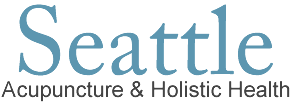Each year, about 40,000 Americans get Bell’s palsy, which results in a temporary
facial paralysis that usually affects one side and lasts a few months. A steroid called
Prednisone, along with over the counter analgesics, vitamins, physical therapy, and
acupuncture are often used to treat the condition. However, a new study from
China reveals that a more intensive form of acupuncture produces significantly
better results when added to prednisone treatment than low-intensity acupuncture
for patients with Bell’s palsy. This more intensive form of acupuncture requires the
acupuncturist to achieve “De qi.”
“De qi” is the term used for the sensation felt when an acupuncturist reaches the
level of qi in the body. Before acupoints are stimulated, they must first be opened to
access the channel passing through it. Acupoints contain the qi, and they allow the
qi to flow outwards to the body’s surface. When correct stimulation is applied, the
qi is activated in the desired channels and areas of the body, offering appropriate
therapeutic results. Click here for more details on what acupuncture feels like.
The needle may be twirled, moved up and down at different speeds and depths,
heated, or charged with a small electrical current until the de qi sensation occurs.
Patients have described the sensation in many ways, including warm, cold, tingling,
and heavy. De qi is also felt by the practitioner and can signal that the proper
amount of needle stimulation is being performed. According to one of the study’s
authors, Traditional Chinese Medicine considers the combination of feelings
associated with de qi to provide the best therapeutic benefit.
Dr. Wei Wang at Key Laboratory of Neurological Diseases of Chinese Ministry of
Education in Wuhan, Hubei, conducted a randomized control study to see whether
de qi makes a difference in the effectiveness of acupuncture therapy. He and his
colleagues asked 317 adults with Bell’s palsy to undergo five half-hour acupuncture
treatments for four weeks. Half of the participants were randomly assigned to
receive treatments that would elicit de qi, and the other half received the traditional
acupuncture treatment in which the needle is inserted and left alone. All of the
participants, however, received prednisone.
Using a scale of 200 to rate patients’ facial function, neurologists found that patients
started with scores around 130 to 135. They did not know which treatment
each participant had received, and patients were rated again after six months of
treatment. Those in the de qi group had an average score of 195 while the other
group scored an average of 186. Although a nine point difference may not seem
significant, Wang notes that this would be noticeable to patients.
Although the study did not measure how well people would have recovered without
receiving acupuncture, or with no treatment at all, the researchers found that 94
percent of the participants who received de qi completely recovered their facial
function by the end of six months. Only 77 percent of patients in the other group
experienced a full recovery.
Many Americans are turning to alternative medicine to treat their medical
problems, and nearly half of physicians in the U.S. have either referred patients
to acupuncturists or would be open to making such a referral. Shands Hospital
in Florida is opening a new Center for Integrative Medicine to provide patients
with other forms of healing, such as acupuncture. This shift may be a result of the
prevalence of doctors prescribing pain medications inappropriately.
Despite its growing popularity, patients should remember that acupuncture also
comes with risks, fraud and misrepresentation. Patients who are interested in
acupuncture should ensure that their acupuncturists are accredited and have a well-
known reputation for providing exceptional standards of care. Click here for details about the
licensing requirements for acupuncture in Washington State.
This blog post was kindly contributed to the Downtown Seattle Acupuncture blog by Ashley Burns.
For more information on treating bells palsy with acupuncture, contact Monica Legatt, Licensed Acupuncturist
